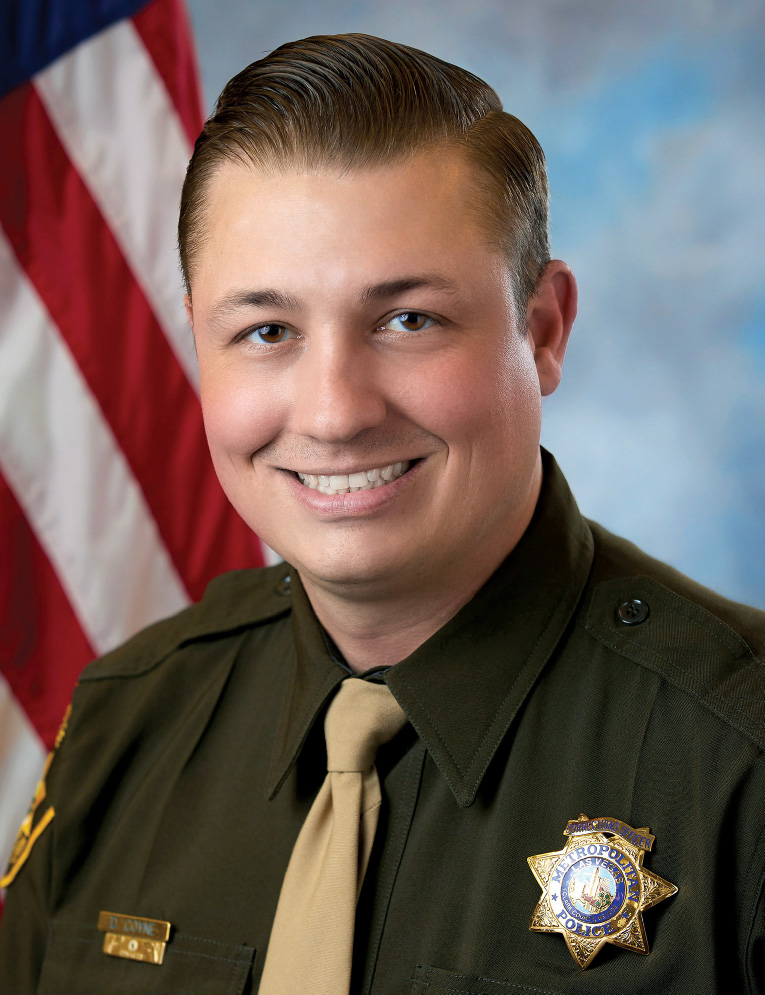
Treasurer
If you’ve been on the Department for more than a year, you have probably experienced or know someone who has gone through the workers’ compensation process. We get calls frequently from members who are dealing with an on-the-job injury. Overwhelmingly, the feedback from them has been negative, as they are forced to fight to get their injuries taken care of. Our members complain that they are denied or waitlisted for months just to get an MRI or a treatment that they need. The process and the Department have made it so difficult to get a procedure approved that they are sitting on the sidelines for months, caught in red tape that is only prolonging their healing time. Our officers just want to get treatment, heal up and get back to work, but they are not being taken care of or treated as they should be.
I reached out to Toby Yurek with GGRM and asked him to outline the process and important steps to take when you are injured at work so that your claim is not denied over missing a deadline or a step in the process. The following is the process and the steps that he recommends you take after an on-the-job injury.
Timelines Matter on Workers’ Comp Claims: Remember Seven Days and 90 Days!
By Toby Yurek
In a law enforcement career, it happens all too often. You get injured on the job and think, “No big deal, I’ll walk it off like I always do.” Then weeks pass, maybe even a couple months, and the injury just isn’t healing as you thought it would. You then think, “No problem, I am within 90 days of injury, so I can still file a workers’ comp claim and get my C4 form filled out by the doctor, right?” Well, maybe not. The law in Nevada requires everyone injured on the job to “give notice” of the injury “in writing” to their employer within seven days of the accident. That’s right, seven days! Failure to give written notice within seven days of the accident is a legal basis for the insurer to deny your claim, even if you thereafter file the C4 (“claim for compensation”) in a timely manner.
How do you avoid this scenario? Always report any injury on the job, and do so via the C1 form, which can be found at dir.nv.gov/WCS/home under the “Forms and Worksheets” link. Fill it out by describing the distinct accident on the job that caused your injury. Have your supervisor sign off on it and save a copy for yourself — even a smartphone pic will suffice! If no one is available to sign off on your C1, fax or email it to your HR department and save proof that you sent it within the seven-day window.
Filing a C1 does not mean you are filing a claim. It simply means you are giving the statutorily required notice that you got injured at work. If luck cuts your way and you do “walk it off” and no C4 is ever filed, no problem. But always make sure you get that C1 on file within seven days of the injury.
Next, as mentioned earlier, if you want to bring a claim, you must file a C4 on or before the 90th day from your accident. That form can be found at the same link listed above. (Note: Metro’s version of the C4 form is the LVMPD26, which is also acceptable.) The C4/LVMPD26 is the formal demand for a workers’ compensation claim in Nevada. The top half will be filled out by you, the injured worker, and the bottom half by a medical provider. The medical provider must be one of the following: M.D., D.O., D.C., APRN or PA-C. No other medical provider will suffice. The C4/LVMPD26 then must be turned in to your HR department. Again, like the C1, keep proof of delivery!
So don’t forget, in Nevada bringing a workers’ comp claim is a two-step process: first giving timely written notice within seven days of the accident via the C1 form, and then filing the formal claim for compensation within 90 days from the accident with the C4/LVMPD26 form that has been fully executed by you and your medical provider. As always, I am here and willing to help answer any of your questions at any time. You can call me on my personal cell at (702) 682-8629 or email me at tyurek@ggrmlawfirm.com.
Thaddeus “Toby” Yurek specializes in workers’ compensation and personal injury litigation. After 20 years of service with the Henderson Police Department in Nevada, he retired as a lieutenant in 2015 to join GGRM. His unique background and experience enable him to provide quality representation, especially when representing police officers and firefighters. Toby completed his undergraduate work at Hope International University in Southern California (1995), earned a master’s degree in Criminal Justice from Boston University (2004) and obtained his Juris Doctorate from the William S. Boyd School of Law at UNLV (2008). He has been a member of the State Bar of Nevada since 2008. He was also elected to the Legislature in 2022, where he currently serves as the assemblyman for Nevada’s Assembly District 19.

